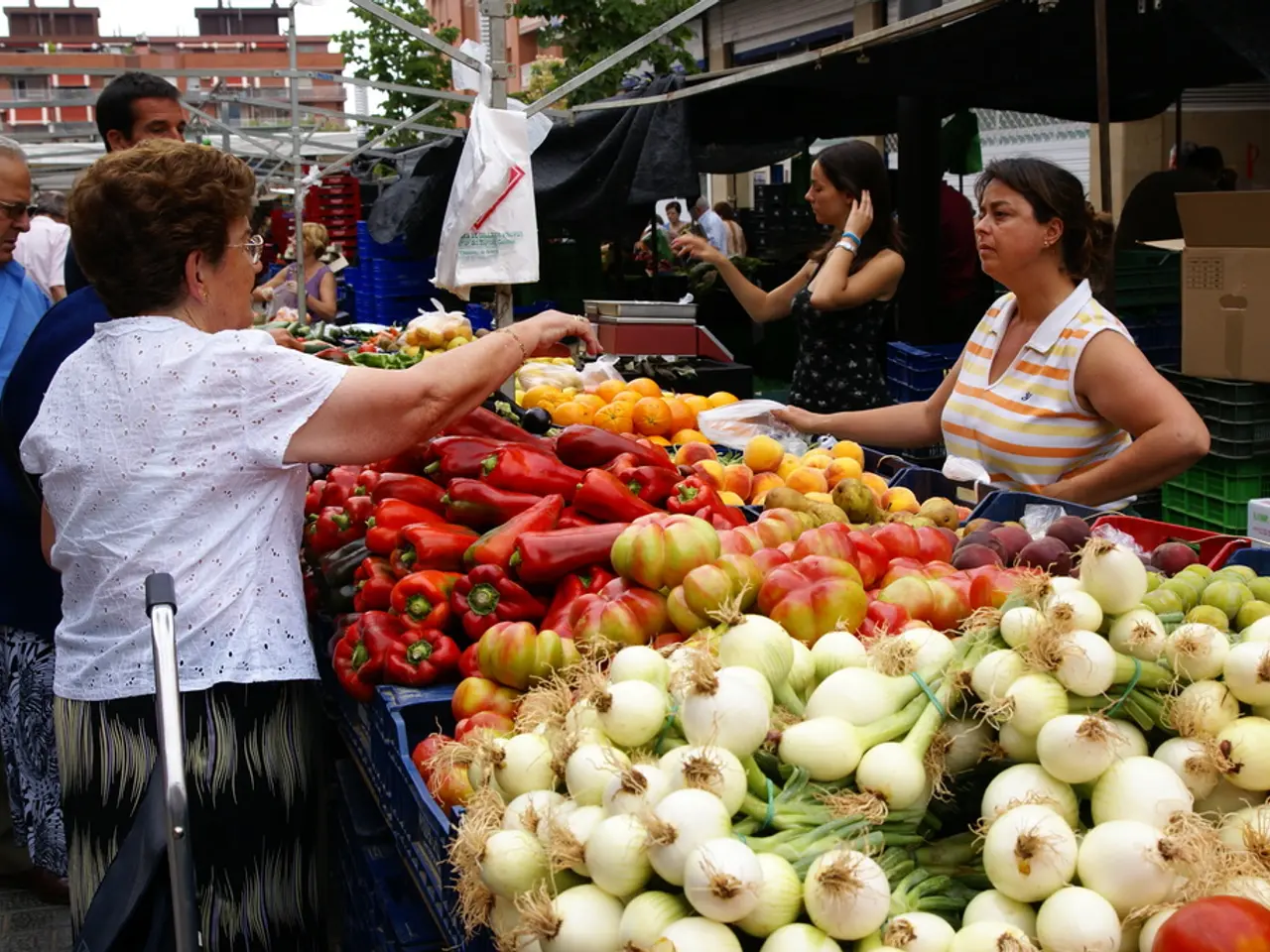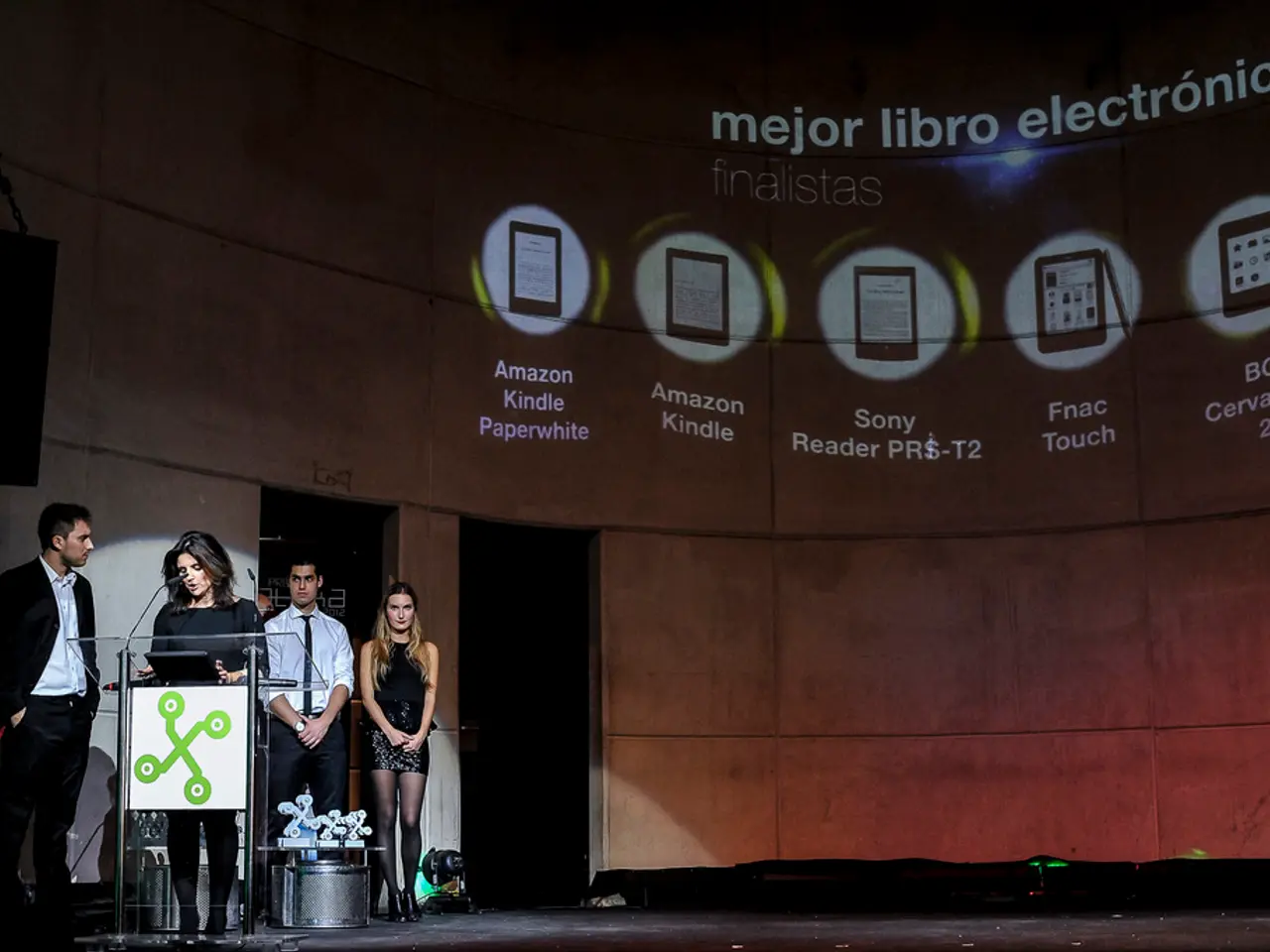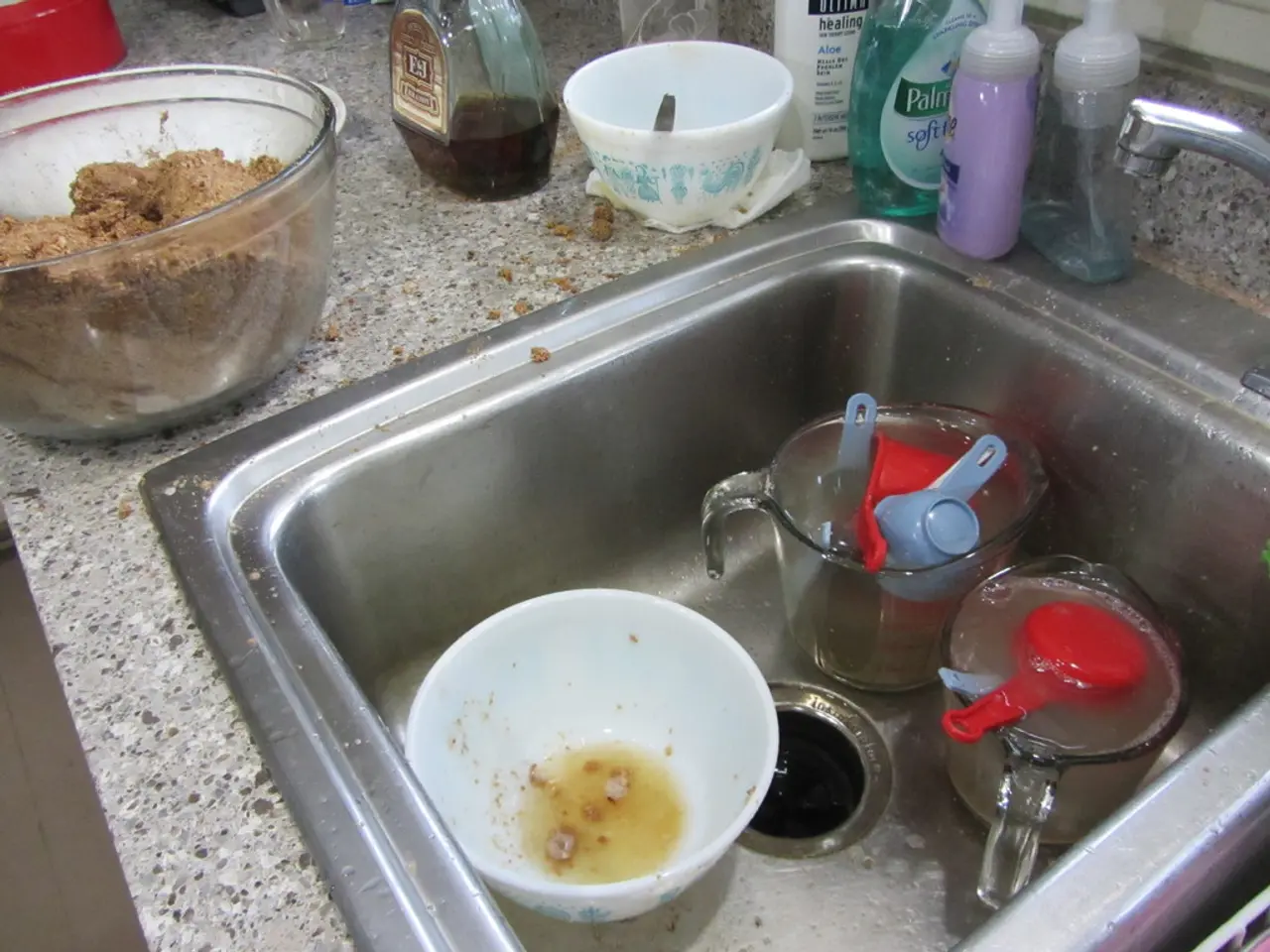Plastic-reducing Philippine businesses demonstrate the effectiveness of polluter-pay principles in developing countries, according to Nanette Medved-Po
The Philippines enacted its Extended Producer Responsibility (EPR) law, officially known as Republic Act No. 11898, on July 23, 2022, marking a significant shift in the country's approach to plastic waste management [1][2][3]. This law, which amends the existing Ecological Solid Waste Management Act (RA 9003), places the onus on large-scale companies to manage and recover a substantial portion of their plastic packaging waste.
## Current Status of the EPR Law
The EPR law mandates obliged companies to recover, divert, and properly manage their plastic packaging waste. By 2024, the recovery target for large companies was set at 40%, escalating in future years [1]. As of 2023, over 917 enterprises have registered under the EPR, though the initial goal was to register 2,100 [2][3]. Many companies, especially those outside Manila, were reportedly unaware of the requirement due to limited government outreach and resources [3].
In its first year, the collective industry surpassed the initial 20% plastic waste diversion target, achieving 23.8% [3]. Some large enterprises overcompensated, sometimes recovering over 100% of their targets, contributing to a total of more than 124,000 tons of plastic packaging kept out of the environment [2][3]. The law operates as a market-based mechanism, allowing companies to invest in waste recovery systems that align with their supply chains, customer values, and operational priorities [3].
## Impact on Plastic Waste Management
The EPR law has led to a significant increase in the amount of plastic packaging recovered and diverted from landfills and the environment, with more than 124,000 tons managed through EPR initiatives in its first year [2][3]. This has fostered a culture of environmental accountability among businesses, requiring them to take responsibility for the entire lifecycle of their products, especially post-consumer plastic waste [2][3].
The EPR law is seen as a step toward a circular economy for plastics, ensuring that waste does not end up in nature and is instead collected, recycled, or repurposed [2]. This progress is viewed as a positive signal for other developing nations, demonstrating that polluter-pays policies can be effectively implemented in the global south [3].
## Notable Initiatives
One notable initiative in the Philippines is Generation HOPE (HOPE stands for Hope for the Environment), founded by social entrepreneur Nanette Medved-Po more than a decade ago. Through HOPE (Generation HOPE Inc. and Friends of HOPE, Inc), Medved-Po constructed over a hundred classrooms across the country using proceeds from the sale of plastic-bottled water [4].
Medved-Po also founded PCX Solutions, a non-profit aimed at addressing plastic pollution by working with governments and businesses to develop and implement plastic management solutions [5]. To avoid conflict of interest, PCX Solutions works with third-party auditors like Control Union to audit the companies' footprints [6].
PCX Solutions helps guide compliance of members like Mondelez, L'Oreal, and Pepsi, and manages a third-party audited Plastic Pollution Reduction Standard to ensure the impact of plastic waste projects [6]. They also assist obliged enterprises in dealing with reduction and recycling of plastic waste [7].
## Global Signaling
Despite the Philippines being a major contributor to ocean plastic pollution, releasing more than 350,000 tonnes of plastic waste into the ocean annually [8], the success of the EPR law is viewed as a positive signal for other developing nations. The Philippines was part of a coalition of over 100 countries pushing for an ambitious, legally binding global treaty to end plastic pollution at the fifth session of the Intergovernmental Negotiating Committee (INC-5) [9].
Nanette Medved-Po, a member of the Philippine delegation at INC-5, expressed excitement and pride during the summit, watching the live stream from the airport as the Philippines and other countries agreed to continue negotiations at INC-5.2 in Geneva [9].
## Summary Table
| Aspect | Status/Outcome (2023–2025) | |-----------------------|-------------------------------------------| | Legal Basis | RA 11898 (EPR Act, enacted July 2022) | | Registered Companies | 917+ (target: 2,100) | | Waste Diversion Rate | 23.8% (target: 20%) | | Plastic Managed (tons)| 124,000+ | | Next Target (2024) | 40% recovery for large companies |
The EPR law in the Philippines is making measurable progress in reducing plastic waste through increased corporate accountability, improved waste management systems, and the promotion of circular economy principles [2][3]. This progress serves as a beacon of hope for the global fight against plastic pollution.
- The EPR law in the Philippines, officially known as Republic Act No. 11898, has signaled a transformation in the country's plastic waste management approach, promoting a culture of environmental accountability within businesses.
- Under the EPR law, large-scale companies are mandated to recover, divert, and manage their plastic packaging waste, with a target of 40% recovery by 2024.
- In its first year, the collective industry surpassed the initial 20% plastic waste diversion target, achieving 23.8%, diverting more than 124,000 tons of plastic packaging from landfills and the environment.
- The law operates as a market-based mechanism, allowing companies to invest in waste recovery systems that align with their supply chains, customer values, and operational priorities.
- The EPR law's implementation is seen as a step toward a circular economy for plastics, fostering a shift from discarding waste in nature to collecting, recycling, or repurposing it.
- Initiatives like Generation HOPE, founded by social entrepreneur Nanette Medved-Po, demonstrate innovative approaches to addressing plastic pollution through education, infrastructure development, and partnerships with governments and businesses.
- Despite being a significant contributor to ocean plastic pollution, the Philippines' progress with the EPR law serves as a positive signal for other developing nations in their pursuit of sustainable solutions and the push for a global treaty to end plastic pollution.




